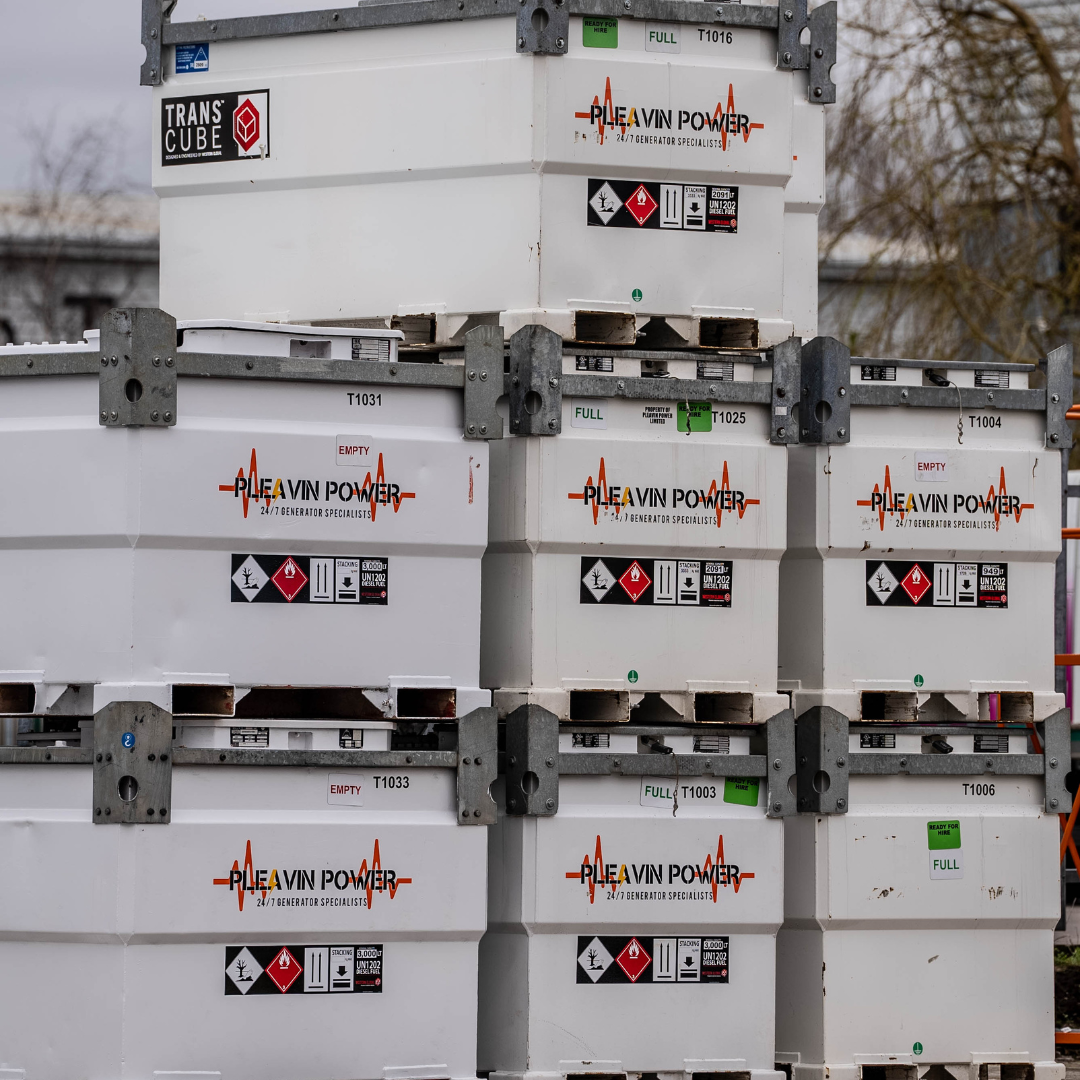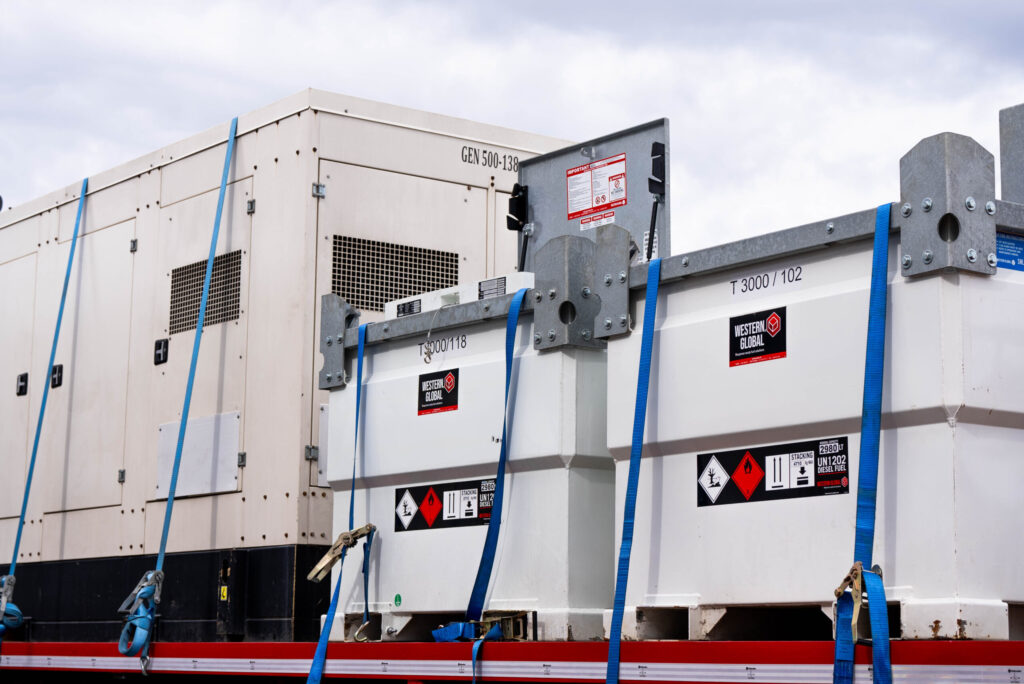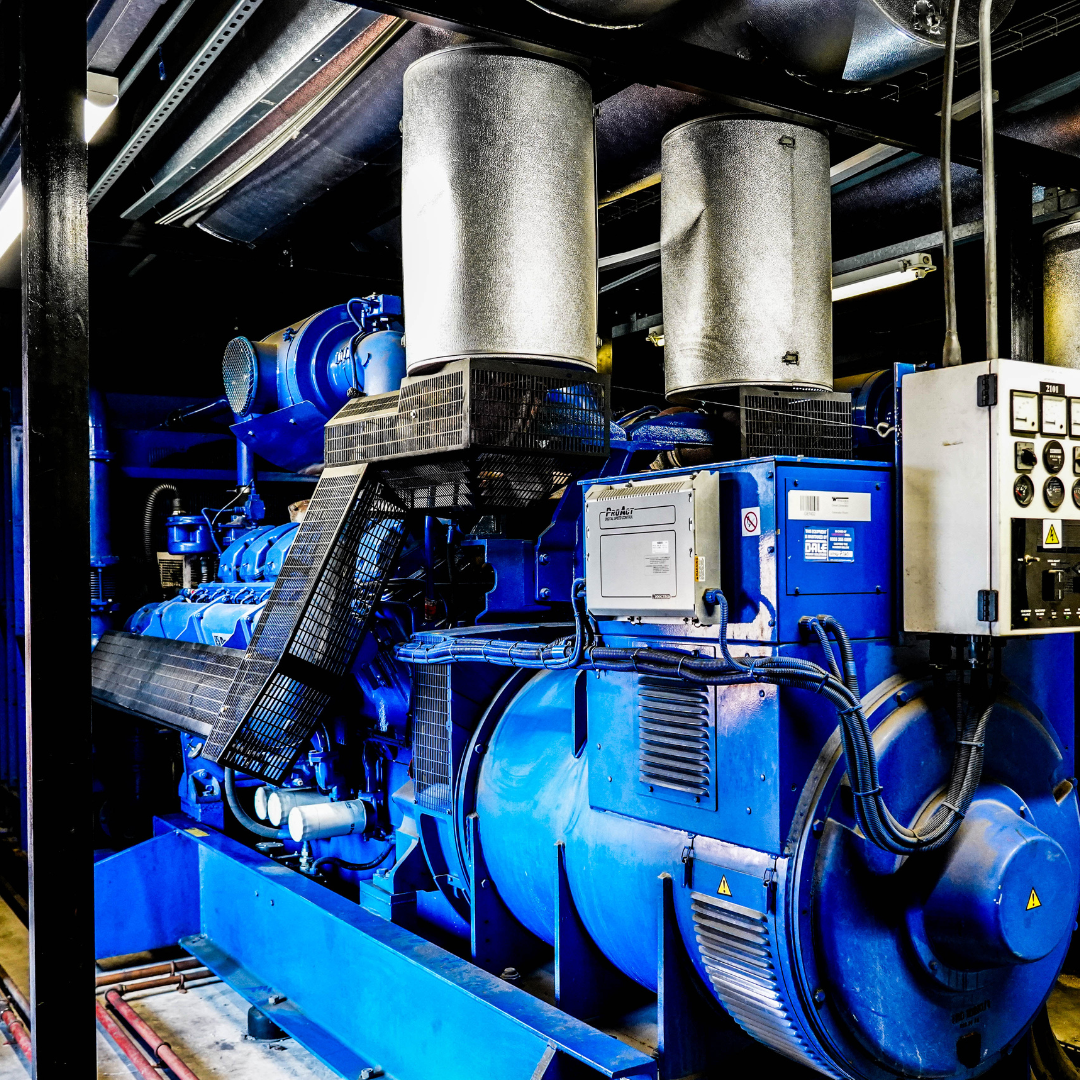Diesel generators are a crucial source of backup power for a wide range of businesses and industries. Like any piece of machinery, generators require regular maintenance in order to run efficiently.
An often overlooked aspect of generator maintenance is the quality of the fuel itself. Over time, diesel fuel can degrade, which can impact the performance and efficiency of the equipment. It could even lead to costly repairs or a shorter operating life for your generator.
If you store or stockpile fuel, or you simply don’t use the generator very much, you’ll need to know about a process known as fuel polishing.
What Is Fuel Polishing?
Fuel polishing is a cleaning process for diesel fuel that has been stored, unused or left uncirculated for a long period of time. It removes water, sediment, bacteria contamination and other impurities from diesel fuel.
It’s different from a simple fuel filter change, as the polishing process actively restores the quality of the fuel. This ensures it meets the right standards to keep your generator running cleanly and efficiently.
How It Works
Fuel polishing systems typically draw diesel from the storage tank and pass it through a multi-stage cleaning and filtration process. Once this is done, the clean fuel is returned back to the tank, where it’s ready for use.
The process involves:
- Separation – removing water and large particles
- Filtration – using techniques such as multi-stage filtering to eliminate finer particulates
- Microbial treatment – adding biocides and other chemical treatments if necessary to kill bacteria and fungi
This last step is particularly crucial, as research has found that the proliferation of microorganisms in fuel can cause fuel degradation, filter blockages and corrosion that is particularly prevalent when fuel is stored for extended periods of time.
The end result of the polishing process is fuel that burns more cleanly and efficiently, helping to protect your generator’s engine and fuel system.

Why It Helps Improve Generator Performance
Clean fuel is vital for the smooth running, efficiency and overall health of a diesel generator, not to mention its longevity. Contaminated fuel is terrible for generators, as it can clog injectors, damage pumps and cause engine misfires.
Fuel polishing eliminates all of these concerns, and offers the following benefits:
- Preventing unplanned generator downtime
- Enhancing combustion efficiency, which can improve power output
- Reducing harmful emissions
- Extending the life of generator parts and components
- For critical backup power systems – such as those used in hospitals, data centres and defence sites, fuel polishing ensures reliability when it’s needed the most.
What Is a Fuel Polishing System?
A fuel polishing system is a specialised piece of equipment which is designed to automate the process of cleaning fuel.
These systems can be installed permanently or used as mobile units to service multiple tanks across a larger site.
Main Components of a Fuel Polishing System
While designs may vary, most fuel polishing systems include the following components:
- Fuel pump – this removes the fuel from the storage tank and circulates it through the system
- Pre-filters and primary filters – these capture particulates of increasingly small sizes
- Water separators – these remove unwanted moisture from the fuel
- Control system – this is the user-operated part of the system, which allows for scheduling, monitoring and reporting
Advanced systems may also feature sensors capable of detecting fuel quality, flow rate and contamination levels in real time.
Mobile vs. Fixed Systems
If you’re considering installing a fuel polishing system on your own site, you’ll have a choice between mobile and fixed systems:
- Mobile fuel polishing systems are portable units that technicians can use across multiple generators or tanks. These are best for large sites with multiple fuel sources
- Fixed systems are permanently installed and continuously monitor and clean fuel. They are best suited for applications where uninterrupted power is essential, and where fuel cleaning is a regular requirement
Of course, most businesses may only need fuel polishing on an occasional basis, or as part of a fixed annual schedule of servicing and maintenance. In this case, using a specialist third-party fuel polishing service may be the most cost-effective solution.

How Often Should You Polish Your Generator Fuel?
Regular fuel polishing is crucial for maintaining optimum generator performance. However, how frequently it should be done in your business depends on a few key things – including storage conditions, fuel turnover rate and environmental factors.
Best Practices
Industry experts generally recommend polishing diesel fuel:
- At least once every 6 to 12 months for stationary generators or tanks with low fuel turnover
- More frequently if the generator is in a humid or wet environment, which can increase the risk of water contamination and microbial growth
- After fuel deliveries, if there’s any doubt about the quality or cleanliness of the incoming diesel (if this happens, you may also want to switch supplier)
Routine fuel testing should also be part of your maintenance plan. This helps you identify if polishing is needed, as well as assessing the overall quality of the fuel before it goes in the generator.
Signs It’s Time for Fuel Polishing
Even without a testing schedule, there are a few warning signs to look out for which could indicate that polishing is needed:
- Discoloured fuel – dark, cloudy or layered diesel can indicate contamination
- Water in the tank – you’ll see this as a separate layer sitting under the diesel
- Blocked filters or frequent replacements – if you’re regularly replacing parts, this could be a sign of excessive particulate matter
- Poor generator performance – make a note of hard starts, rough running or increased smoke, especially if these incidents become more frequent
If you spot any of the above, you’ll need to act quickly to prevent lasting damage to your generator. If you ignore the problem and use the fuel anyway, you could end up needing a complete generator overhaul or replacement.
At Pleavin Power, we understand how vital clean fuel is for operational readiness. Whether you need a one-time polish, a mobile service or a fixed installation, our team is here to help keep your power running smoothly.















